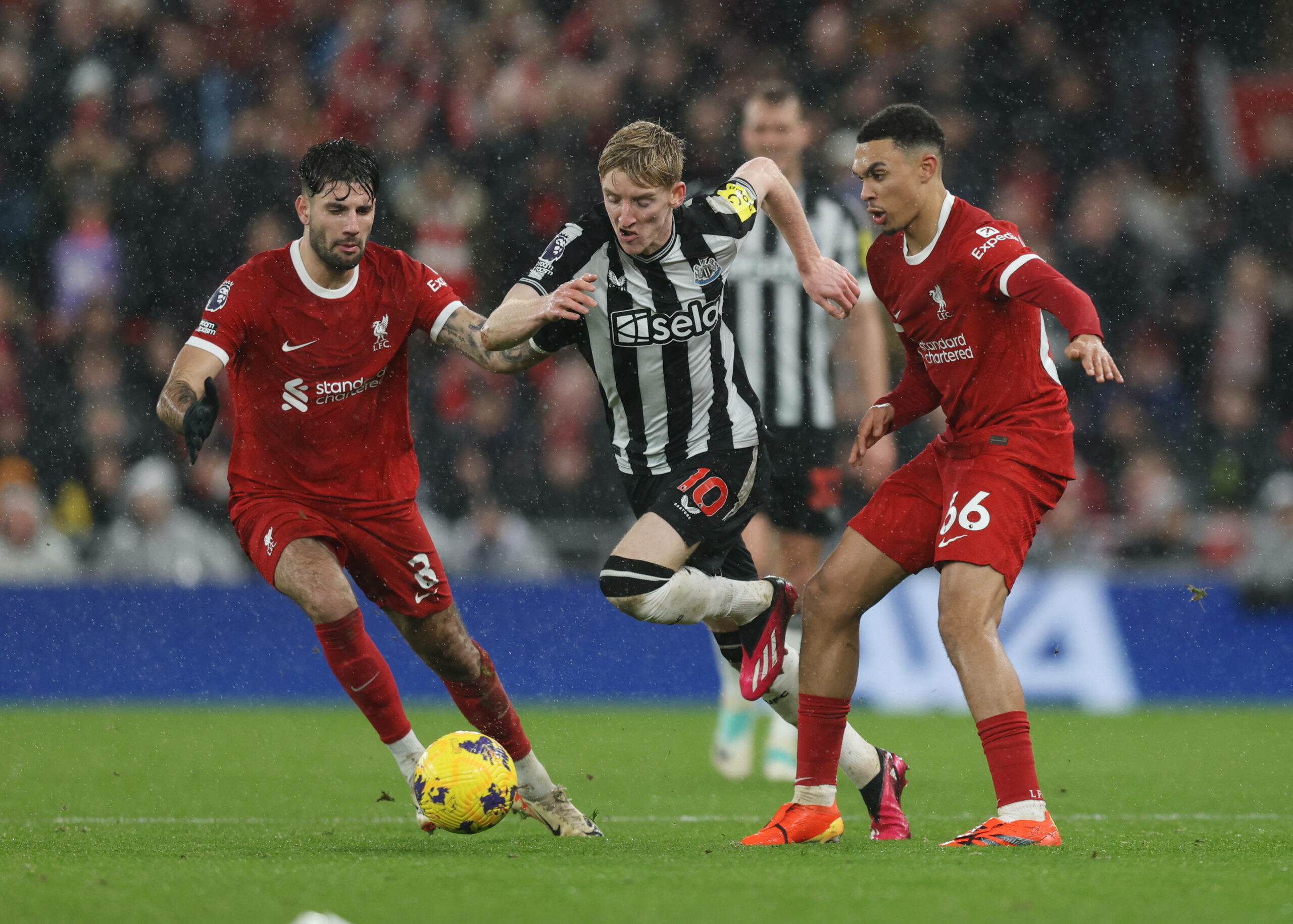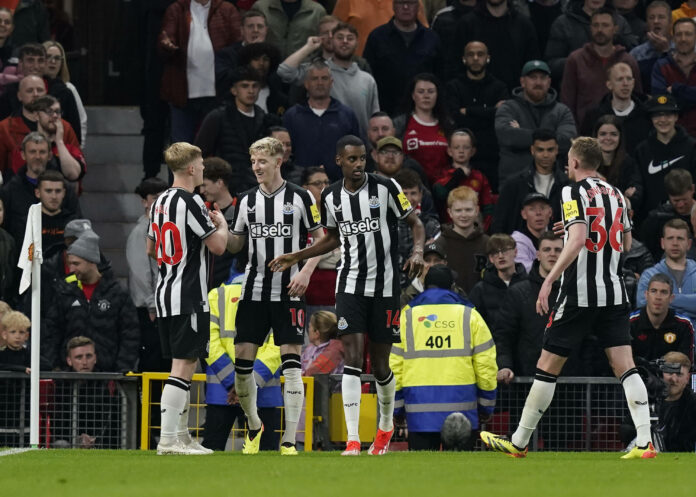Analysing Liverpool’s Transfer Strategy: The Case of Anthony Gordon
Introduction to Liverpool’s Transfer Tactics
Football’s transfer market is as strategic as the game itself, filled with intrigue and speculation. The recent chatter around Liverpool’s interest in Anthony Gordon has sparked considerable debate, with notable insights provided by David Lynch on the Anfield Index’s ‘Media Matters’ podcast. In this analysis, we’ll delve deeper into the dynamics of this potential transfer, examining Liverpool’s strategic positioning and the broader implications for their squad development.
Liverpool’s Stance on Anthony Gordon
David Lynch highlighted that Liverpool’s interest in Anthony Gordon is well-known, yet their decision-making process is heavily influenced by existing squad dynamics and financial prudence. “Newcastle came because of their PSR needs and knew that Liverpool like Anthony Gordon. Obviously Liverpool turned it down because the numbers weren’t right and Jarell Quansah was involved in the deal, which is an absolute non-starter as far as Liverpool are aware,” Lynch noted. This statement underscores Liverpool’s calculated approach to not disrupt their squad balance for a high-cost transfer, especially involving a promising youngster like Quansah.
Furthermore, Lynch pointed out a logistical snag from Liverpool’s perspective, commenting, “I think Liverpool also had another concern, which is that they have so many players on that left-hand side at the moment.” This highlights the redundancy in adding another left-sided player without offloading existing talent, which could stifle squad harmony and player development.
The Economic and Tactical Considerations
Financial and tactical considerations play a crucial role in Liverpool’s transfer decisions. Lynch sheds light on the contractual situation and potential ripple effects within the squad: “In terms of the conditions, on transfermarkt his contract is until 2026, so if that is true, that is hugely beneficial for Liverpool.” He also speculated about potential shifts affecting the deal, “Another element is Luis Diaz and what happens with him, if Liverpool shift him to Barcelona and have the money to spend then there could be another move.”

These insights suggest that Liverpool is preparing for multiple scenarios, keeping their options open while ensuring financial flexibility. The notion that Anthony Gordon’s contract runs until 2026 gives Liverpool an advantage in any future negotiations, possibly reducing the transfer urgency.
Future Prospects and Strategic Fits
Discussing the potential long-term benefits and fit within the team, Lynch remarked, “It’s so rare that you get players with 10 goals and 10 assists in a single season, the work rate is there, he scores goals against the top six, there is loads to like about him. Obviously the fact that he would want the move is huge as well.” This encapsulates Gordon’s appeal as a player who not only possesses impressive stats but also has the desire and passion to play for Liverpool, a factor that cannot be underestimated in transfer considerations.
Additionally, Lynch suggested that this might not be the end of Liverpool’s interest: “The sales of Elliott Anderson and Yankuba Minteh have taken some pressure off them but, we might not have seen the end of this one yet.” This opens up the possibility of revisiting this transfer in future windows, especially as the squad evolves and certain positions become more flexible.
Conclusion: A Calculated Wait-and-See Approach
Liverpool’s approach to the Anthony Gordon saga is a classic example of their broader transfer strategy—meticulous, patient, and strategically aligned with both financial health and team chemistry. As Lynch aptly summarised, “There’s potentially legs in this one, so perhaps Liverpool are laying the foundations for a move later in the window. They like him, he likes them, there’s a lot of nice things coming together.”
This situation reflects the complex interplay of personal desire, tactical fit, and financial feasibility that defines modern football transfers. As Liverpool continues to build a competitive squad capable of challenging on all fronts, their handling of potential signings like Gordon will be crucial in shaping their future.
Through careful planning and strategic foresight, Liverpool is ensuring that any new addition, like Anthony Gordon, is not just a good player but the right player at the right time.



